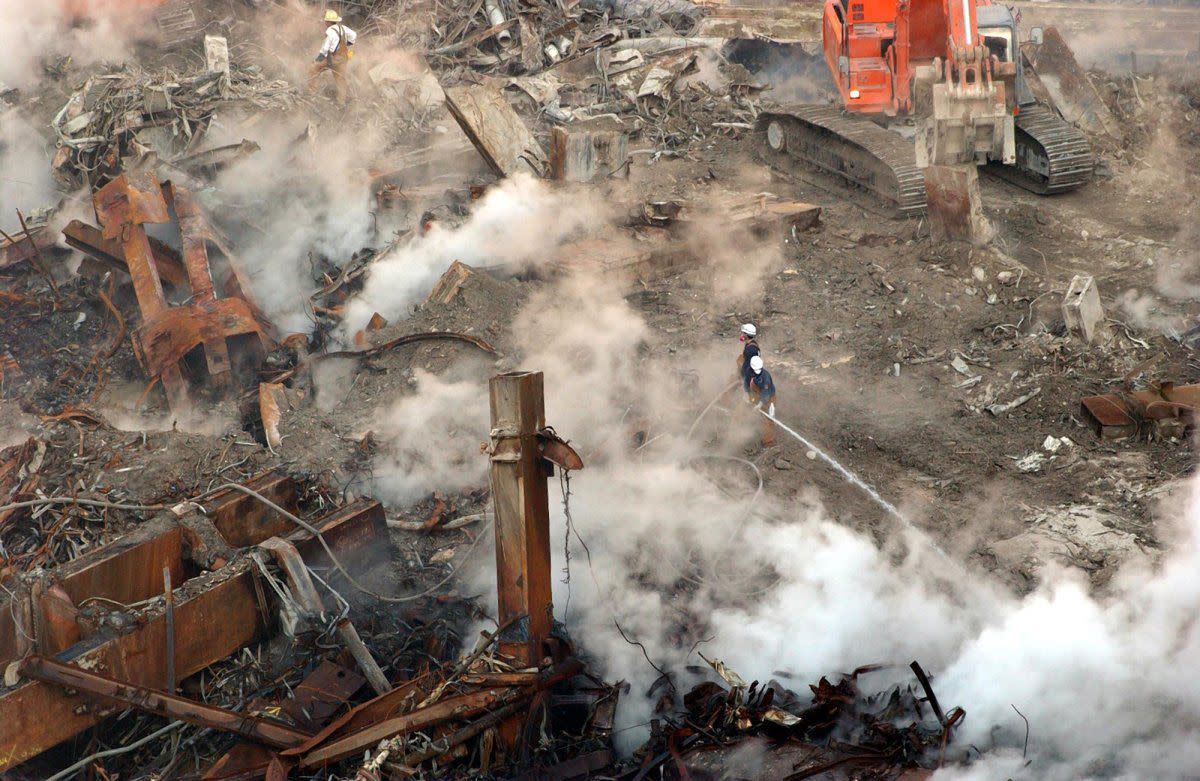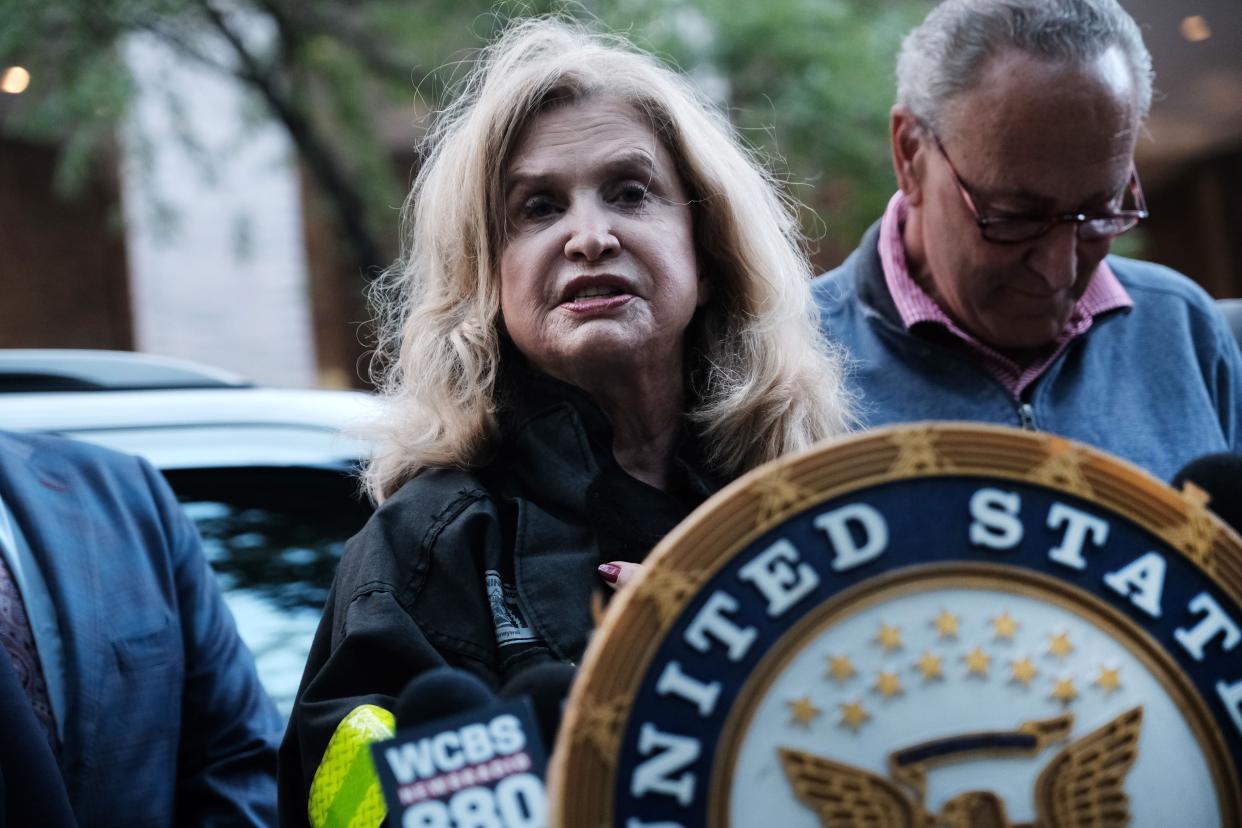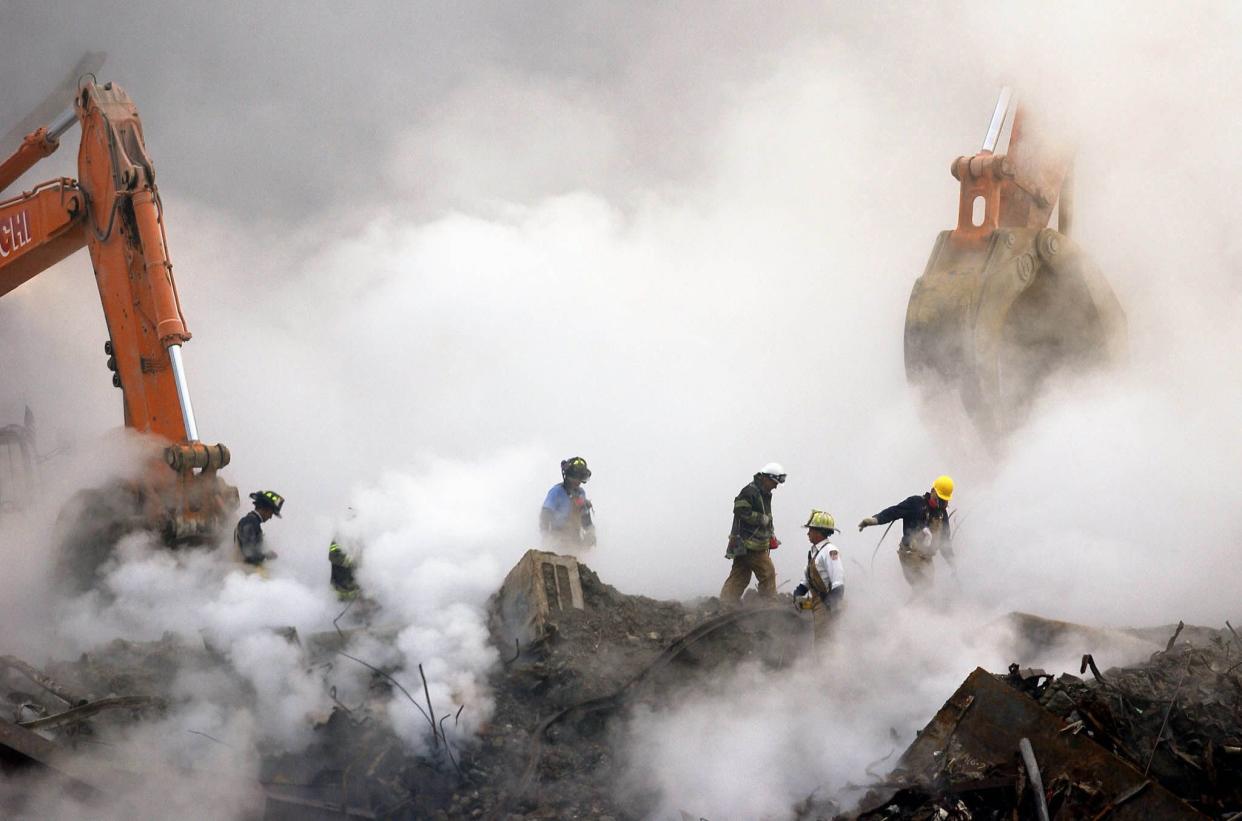Rep. Carolyn Maloney demands push for 9/11 health fund after $3B nixed from giant Democratic spending bill
WASHINGTON -- After the Senate failed to secure funding for ill 9/11 responders in the Democrats’ new budget bill, it’s time to do something more straight forward, and just pass the money on its own, Rep. Carolyn Maloney (D-N.Y.) told the Daily News Friday.
Because funding formulas written into the 9/11 health law have proven insufficient to meet demand, the program that treats sick responders and survivors is on track to run a $3 billion deficit.
9/11 health fund faces $3 billion shortfall
Lawmakers had hoped to add the money to the Democrats’ so-called reconciliation budget, which they could pass without Republican support.
But Sen. Joe Manchin(D-W.Va.) first stopped that last December when he killed the Democrats’ Build Back Better Act. Schumer announced Thursday that Manchin blocked 9/11 funding in the new version of the bill that Manchin supports, the “Inflation Reduction Act Of 2022.”

In this file photo of Oct. 11, 2001, twisted steel juts out from the rubble of the north World Trade Center tower in New York as a firefighter tries to cool down the still smoldering debris one month to the day after the disaster. (LOUIS LANZANO/AP/)
While Maloney said she was “thrilled” that Schumer could cut any deal with the West Virginian Democrat, she added, “I am deeply disappointed by their decision not to include $3 billion to address the funding shortfall for the World Trade Center Health Program.”
Schumer vows to pass cash for 9/11 health fund
Schumer said Thursday that he would find some other massive, must-pass bill to carry the 9/11 health funding, like the national defense bill or the bill to keep the government open at the end of September.
“In advance of the 21st anniversary of the 9/11 attacks, I am calling on House leadership to pass my standalone bill on this issue, which has 100 bipartisan co-sponsors,” Maloney said. “We must do everything we can to support the responders and survivors who were on the frontlines of the attack. They were there for us, and we have a commitment to always be there for them.”

Rep. Carolyn Maloney (D-N.Y) in the foreground and Senate Majority Leader Chuck Schumer (D-N.Y.) in the background call on Congress to pass the 911 Responder and Survivor Health Funding Correction Act on September 10, 2021, in Manhattan, New York. (Spencer Platt/)
Maloney already has enough Republican support to guarantee passage in the House. Long Island Rep. Andrew Garbarino, who is a co-sponsor of Maloney’s bill, organized a dozen Republicans last month to call for its standalone passage.

FILE - In this Oct. 11, 2001 file photo, firefighters make their way over the ruins of the World Trade Center through clouds of dust and smoke at ground zero in New York. (Stan Honda/)
“The WTCHP needs adequate funding now and into the future so that every injured and ill 9/11 responder and survivor has access to the medical treatment and monitoring they need and deserve,” Maloney said, noting that there are more than 117,000 Americans in the health program, including many who “suffered severe impacts as a result of exposure to toxic chemicals, pulverized drywall, and powdered cement.”
